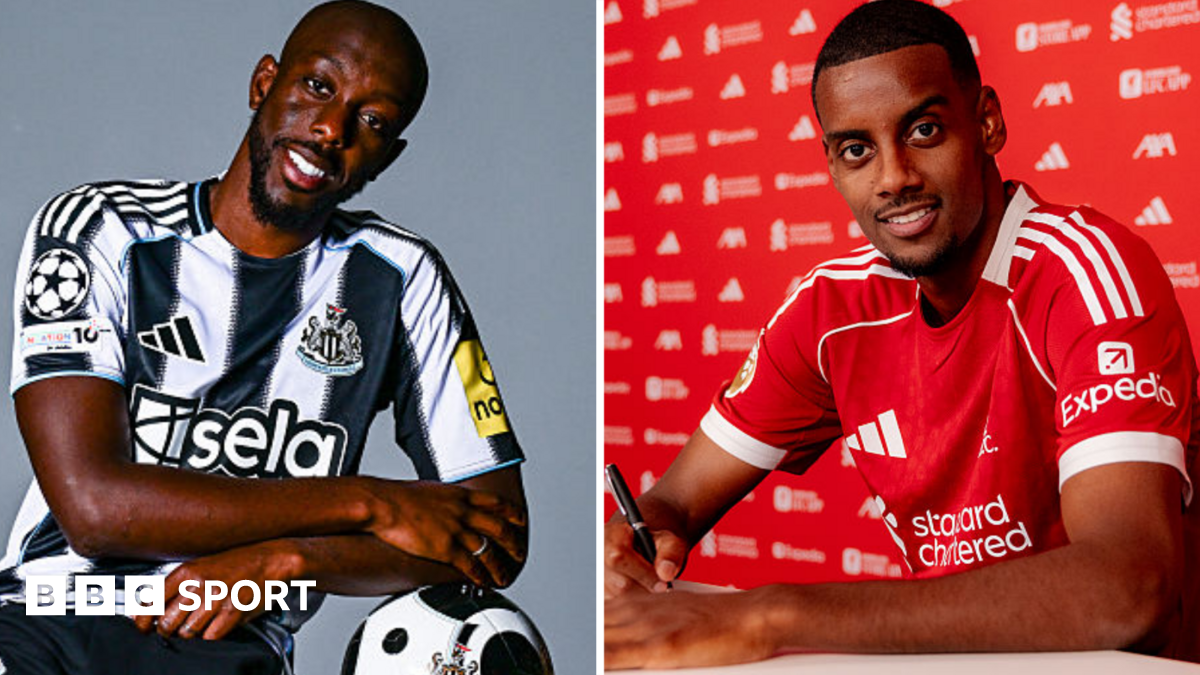The Player Power Fallout: ‘Despicable’ Stars or ‘Hypocritical’ Clubs?
The summer transfer window has once again ignited fierce debate over the balance of power between football clubs and their players. This year, the spotlight fell on striking strikers Alexander Isak and Yoane Wissa, whose aggressive tactics to force moves away from Newcastle and Brentford divided opinion across the sport. While pundits like Chris Sutton labeled their actions “despicable,” others, including former players Joe Hart and Troy Deeney, argued that clubs are equally culpable in the high-stakes game of modern transfers.
The Rise of Player Power in Modern Football
Alexander Isak’s £125 million deadline-day transfer to Liverpool—a British record fee—came after the Swedish forward released a public statement accusing Newcastle of breaking promises, claiming their “relationship couldn’t continue.” Similarly, Yoane Wissa missed Brentford’s opening four matches of the season before sealing a £55 million move to Newcastle, leveraging social media to demand the club “keep their word.”
These tactics sparked outrage. Ex-Blackburn striker Chris Sutton condemned both players as “disgraceful” and “disrespectful,” emphasizing that contracts should be honored. “People in everyday lives sign contracts and adhere to them,” Sutton argued on BBC Radio 5 Live. “It’s absolutely despicable what they’ve done.” Alan Shearer echoed this sentiment, acknowledging that while self-interest drives football, Isak’s approach “was not the right way.”
Yet, the outcome speaks volumes: both players secured blockbuster moves. Meanwhile, England defender Marc Guehi—who continued training and playing professionally for Crystal Palace amid Liverpool’s interest—saw his dream transfer collapse. Guehi’s restraint earned widespread praise, but it also raised uncomfortable questions: does player power now trump professionalism in achieving career goals?
A Double Standard or a Necessary Evil?
The divide between critics and defenders of player power hinges on competing perspectives of loyalty and leverage. Sutton insists these cases are outliers, pointing to Eberechi Eze’s seamless £60 million move to Arsenal without public tantrums. But Troy Deeney, former Watford captain, countered that players have always used drastic measures to force transfers, calling club criticism “hypocritical.”
“No one complains when clubs sack managers or discard players,” Deeney told BBC Sport. “But suddenly, when a player prioritizes their career, it’s a scandal.” His view underscores a growing sentiment that clubs weaponize contract loyalty only when it suits them. Joe Hart expanded on this during the Monday Night Club, recalling how teams “stomp all over players” during contract negotiations or squad overhauls. “Newcastle could’ve dug their heels in with Isak,” Hart noted. “They didn’t—because the offer was too good.”
This transactional reality reveals football’s unwritten rules: player power succeeds when clubs stand to profit. Newcastle, for instance, benefited doubly—losing Isak but gaining Wissa, whose own strike tactics weakened Brentford’s bargaining position.
The Precedent Problem: Rewarding Bad Behavior?
The success of Isak and Wissa’s hardball tactics risks normalizing disruptive behavior. Rory Smith of The Observer posed the critical question: “Does it set a precedent that those who misbehave get moves, while professionals like Guehi miss out?” This dichotomy troubles purists who fear a future where training-ground rebellions become routine.
However, history suggests such fears are overblown. From Dimitar Berbatov’s 2008 strike at Tottenham to force a Manchester United move, to Pierre-Emerick Aubameyang’s fraught exit from Arsenal, high-profile standoffs have always occurred—but rarely become the norm. Most transfers still conclude through negotiation, not nuclear options. Still, the financial stakes today amplify the consequences. With fees exceeding £100 million, clubs face immense pressure to either retain assets or cash in quickly, creating fertile ground for player power gambles.
Clubs vs. Players: Who Really Holds the Power?
The Isak-Wissa saga reveals a nuanced truth: player power is situational, not absolute. For every star who forces an exit, dozens more—like Guehi—remain bound by contracts. Clubs still wield immense control, particularly over players with limited leverage (e.g., younger stars or those with lengthy deals). But when elite talent agitates, the balance shifts.
This dynamic fuels accusations of hypocrisy. Clubs demand loyalty yet ruthlessly sell players for profit or release them when injuries strike. Players, meanwhile, are vilified for seeking career advancement despite short career spans. As Wayne Rooney noted, Guehi deserved “great credit” for his professionalism—but did his adherence to decorum cost him a transfer?
Conclusion: The Uncomfortable Truth of Modern Football
The player power debate won’t resolve soon, because it reflects football’s inherent contradictions. Contracts are sacrosanct until they’re not. Loyalty is preached until a better offer arrives. Isak and Wissa may have tarnished their legacies, but their moves succeeded in a system that ultimately rewards results over ethics.
As transfer fees and salaries escalate, tensions between clubs and stars will only intensify. The real question isn’t whether player power is “despicable” or “hypocritical”—it’s how football navigates this collision of commerce and morality without losing its soul.
